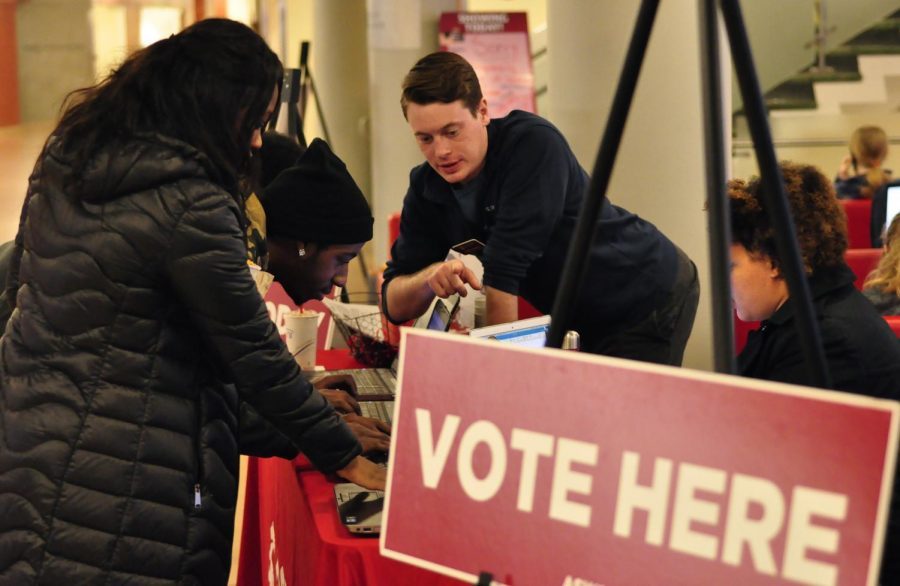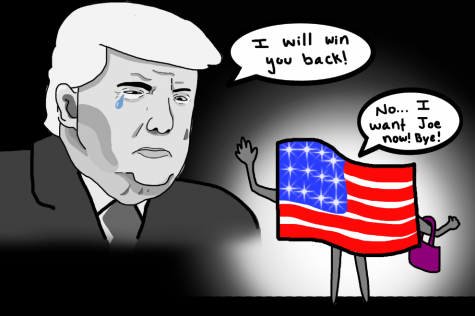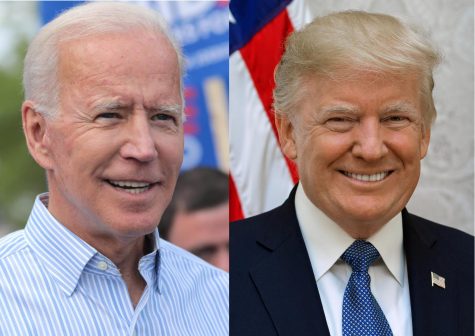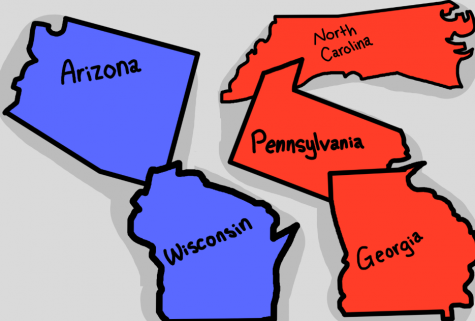One political opinion shouldn’t define party loyalty
Being a loyal party member often demands an unjust sacrifice of individual values
MATT ESTABROOK | The Daily Evergreen
Voters should exercise their right to participate in democracy by voting according to their own values and not just ones that correspond to the party they identify with.
August 23, 2018
The urgency to align with one political party, and one party alone, is overwhelming, to say the least. This becomes a problem when citizens do not fully agree with any candidate and thus refuse to vote, especially in general elections when it usually comes down to the big two.
From a young age, party politics are presented as an immutable set of ideals that are incompatible with opposing values. Hardline members often communicate the expectation that anything less than absolute loyalty is a betrayal.
However, agreeing with a candidate on every issue is unlikely. Resisting complete party affiliation requires critical consideration of the ideals a voter values most and what compromises they are willing to make.
The pervasive idea that there is no such thing as middle ground eliminates the freedom to have dissenting ideals and still be a loyal party member. Either you align with a party or you are on the fence and therefore have no opinion. Centralization is seen as a symptom of an uncaring or uneducated mindset, left to those who don’t have the political maturity to pick a side.
Including components of multiple political alignments into a belief system does not make one a bad supporter or a hypocrite. Instead, it is a sign of thought and consideration that goes beyond the defining limits of strict affiliation. This applies to third parties like Libertarianism or the Green Party as well.
The stance taken on one issue should not define an entire political ideology. But the pressure to align completely one way or the other, with no leeway, can limit the dialogue people have with others — and themselves.
Sometimes, then, disagreement turns into hateful assumptions. A person believes in conservative economics and suddenly, they are bigoted and want others to financially suffer. Another who supports the right to abortion is a snowflake lacking traditional morals. Regardless of their true beliefs, these people are immediately lumped into broad categories without further discussion.
That isn’t to say citizens cannot choose a single party. But inferring a person’s political stance based on just a few of their perspectives is dangerous to civil discourse.
The desire to vote within party boundaries frequently overtakes critical analysis of a candidate’s qualifications and character. This came up recently in the primary election for Whitman County district court judge.
According to the Facebook campaign page of former candidate Dan LeBeau, one of the questions asked most frequently was LeBeau’s political alignment.
However, as LeBeau said in a post, “Judicial candidates can’t declare any party affiliation and can’t even publicly identify themselves with any party.”
The fact that he had to explain is a sign of more than one problem. It shows the people asking these questions lacked knowledge that Washington’s judiciary is nonpartisan on every level. The other issue is that potential voters were more interested in umbrella affiliation — if judges were allowed such an identity — than specific ideals and beliefs.
If we want to protect civil discourse we have to exercise the right to disagree with our own party just as much as the perceived opposition. Informed voters have the choice to break free from the constraints of typical party lines, regardless of how they have voted in the past, and an obligation to themselves to balance personal and political loyalties.





















